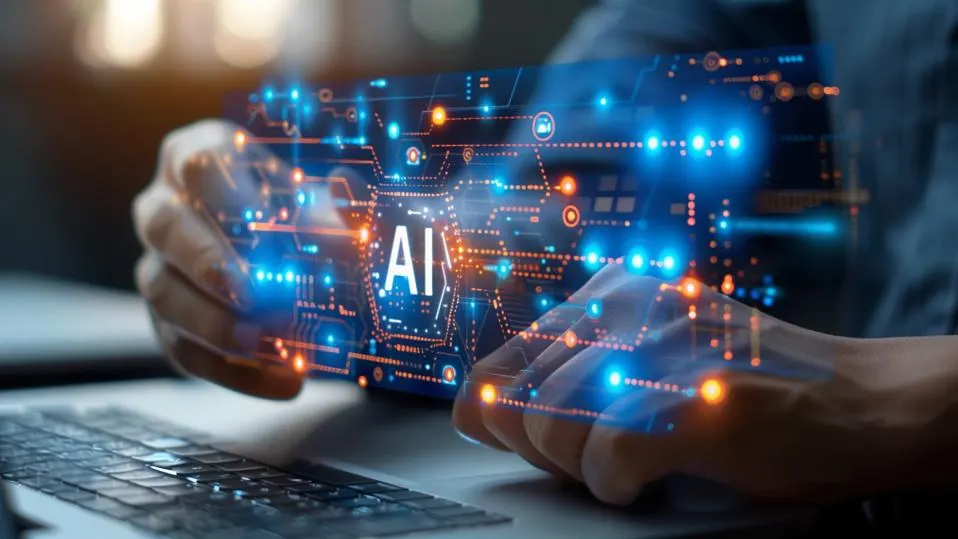AI Politicians: The Future Of Democracy Or A Threat To Freedom?
8 July 2024
2024 is a big year for democracy, with over two billion of us voting in elections across the US, India, the EU, the UK and many other countries and territories.
But if you’re heading to the ballot box this year, would you consider voting for an AI candidate?
Or how about letting an AI pick the best candidate to lead you?
And have you considered to what extent AI is going to affect the outcome of polling and influence the choice of voters?
These are all ways that AI is playing an increasingly prominent role in elections, democracy and governance, just as it is in every other area of life. So let’s explore some of the potential ramifications of this on the events of 2024 – the year that AI and elections collide in a big way!

Virtual Politicians
Virtual politicians, as well as political parties driven by AI, are now appearing on ballot boxes around the world.
In Brighton, UK, citizens will have the opportunity to vote for “AI Steve”, an avatar created by businessman Steve Endacott. Voters can chat and interact with Steve, questioning him on his policies on issues ranging from local housing to LGBTQ rights.
Steve will then formulate policies based on these interactions as he attempts to represent the views and values of his (potential ) constituents.
Apparently, not everyone is convinced, with one local resident telling Reuters, "AI and politicians have one thing in common: they can’t be trusted.”
Steve is not the first virtual politician. In New Zealand, SAM, created by software developer Nick Gerritsen, was built to answer questions from constituents on social media. And Alisa ran against Vladimir Putin in the 2018 Russian elections with the mission of creating "the political system of the future, built exclusively on rational decisions made on the basis of clear algorithms." Alisa seems to have since disappeared.
In Denmark, another experiment in fusing AI and democracy was spearheaded by The Synthetic Party, founded by philosopher Asker Bryld Staunæs. The party generated policies via machine learning based on texts created by Danish fringe parties since the 1970s, with the aim of creating a party that would represent the views of the 20 percent of Danes who don’t vote.
The companies that make this all possible by building AI have proven to be a stumbling block for some AI would-be politicians, however. ChatGPT creator OpenAI recently banned an AI candidate built on its technology from running in a US mayoral election, stating that it broke its user license by engaging in political campaigning.
The Influence Of AI Algorithms
Even if we wouldn’t choose to vote for an AI politician, would we consider letting AI choose who we should vote for by deciding which human candidates best represent our views?
Or, to take a more sinister view – could this already be happening without our knowledge?
This is the view taken by Yuval Noah Harari. Harari has argued that AI has already been pivotal in influencing our choices due to the all-pervasive algorithms that serve us content on social media. These algorithms, designed to keep us engaging with platforms, may feed processes like confirmation bias, providing subtle impact on our thoughts and actions which could have significant impact on our decision-making at the ballot box.
In his book Homo Deus, Harari even suggests that perhaps AI should vote for us due to its ability to deeply understand our beliefs and preferences and then match us with parties and candidates that are most likely to make us happy.
Deepfakes And Disinformation
We have seen algorithms being leveraged to deliberately spread disinformation in previous elections. However in 2024 more people than ever have access to powerful tools and technologies that can be abused in this way.
Deepfakes in particular – synthetically generated video and audio that can mimic the likeness of a real person – pose a real threat to democracy. Highly convincing videos of politicians, including Joe Biden and Rishi Sunak, have already spread far and wide. Some are humorous, ridiculous and most likely harmless, such as Nigel Farage blowing up Rishi’s Minecraft house. However, there is clearly the potential for damage to the reputation of politicians, particularly if the content is targeted at those with low levels of tech literacy.
Efforts to mitigate the threat involve technology – creating tools that can detect deepfakes, and legislation – China’s recently introduced AI laws make it a crime to portray someone falsely. Education, however, is likely to be the most critical measure, ensuring the public are aware of what can be done with AI, and that not everything they see online, even in videos, is true.
AI And The Future Of Democracy
As AI continues to become more sophisticated and pervasive, its potential to influence and perhaps endanger democracy will only increase.
Though we may not yet be ready to vote for AI politicians, The concept serves as an interesting experiment in the power of technology and the direction society may be heading in.
As with many other professions, AI will certainly be harnessed by politicians and candidates to make their jobs easier. They will be able to make data-driven decisions that align with the interests of those they represent, analyze and draft proposals, manifestos and legislation, and create personalized messaging that may enable them to target individual voters more effectively.
And as voters, we will leverage it to gain insights into how well parties and politicians live up to the standards we expect from our elected representatives.
However there are also important ethical concerns that will need to be addressed around accountability, transparency, and the requirement for robust legislative frameworks to prevent the spread of misinformation.
By addressing these issues now, we can ensuring AI evolves in a way that is beneficial to the concept of democracy as a whole, encourages politicians to take actions we agree with, and helps us all make better and more informed political choices.
Related Articles
Can Your Device Run Apple Intelligence? What You Need To Know
Apple's announcement of Apple Intelligence has sent waves of excitement through the tech world.[...]
10 Amazing Things You Can Do With Apple Intelligence On Your IPhone
Apple Intelligence is poised to revolutionize the iPhone experience, offering a suite of AI-powered tools that promise to make your digital life easier, more productive, and more creative.[...]
Agentic AI: The Next Big Breakthrough That’s Transforming Business And Technology
The world of artificial intelligence is evolving at a breakneck pace, and just when you thought you'd wrapped your head around generative AI, along comes another game-changing concept: agentic AI.[...]
The Employees Secretly Using AI At Work
Imagine walking into your office and noticing your colleague Sarah effortlessly breezing through her tasks with uncanny efficiency.[...]
Battling AI Fakes: Are Social Platforms Doing Enough?
Since generative AI went mainstream, the amount of fake content and misinformation spread via social media has increased exponentially.[...]
Creating The Universal AI Employee Of The Future
Imagine a world where your most productive employee never sleeps, never takes a vacation, and can seamlessly adapt to any role you need.[...]
Sign up to Stay in Touch!
Bernard Marr is a world-renowned futurist, influencer and thought leader in the fields of business and technology, with a passion for using technology for the good of humanity.
He is a best-selling author of over 20 books, writes a regular column for Forbes and advises and coaches many of the world’s best-known organisations.
He has a combined following of 4 million people across his social media channels and newsletters and was ranked by LinkedIn as one of the top 5 business influencers in the world.
Bernard’s latest book is ‘Generative AI in Practice’.










Social Media